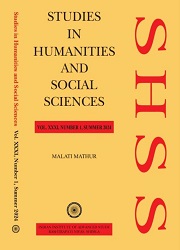On Berkeley’s Empiricism and Anti-Scepticism
Keywords:
Scepticism, Knowledge, Primary qualities, Secondary qualities, Ideas, Objects, SpiritsAbstract
In the first section of this paper, Berkeley’s empiricism has been introduced by underlining his stance against scepticism and atheism. In this connection, Bayle’s argument has been discussed to indicate that Berkeley hardly gave up the sceptical way of thinking at least with respect to the reality over and above the appearances. In his refutation of Locke’s two qualities, he has accepted scepticism against primary qualities although it is quite clear that he recognizes the distinction as the source of scepticism. In section two a discussion on Berkeley’s refutation of the distinction of primary and secondary qualities has been carried out. Here it has been highlighted that (one) Berkeley’s idealism does not reduce objects to ideas, on the contrary it elevates ideas to objects (of knowledge), and (two) the significance of God in Berkeley’s framework helps us to avoid the criticism that Berkeley’s idealism promotes private and subjective knowledge. In the final section, an attempt is made to explain Berkeley’s anti-materialism which has led him to advance spiritualism by accepting the existence of God, myself, and other spirits. It is concluded that Berkeley’s ‘esse est percipi’ does contribute to his spiritualism and anti-scepticism.


